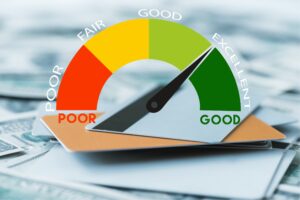
Are you considering breaking the lease on your apartment? Sometimes life events like a new job, sudden job loss, or buying a home can cause us to break an apartment lease. However, in these circumstances, your landlord has no obligation to let you out of your lease. Before you notify your landlord, you should be aware of the consequences that could stay with you for years to come and it can be difficult to find no credit check apartments. So, here are some things you need to consider before you abandon your current lease.
1. Loss of Security Deposit

The most immediate consequence of breaking your apartment lease is losing your security deposit. This is the most common consequence of breaking an apartment lease. If you paid the first month’s rent, last month’s rent, and a security deposit, you should also expect to lose your last month’s rent if you break your lease.
2. Responsible for Unpaid Rent
Your landlord will probably also hold you responsible for any unpaid rent. Depending on the terms of your lease, some landlords will allow you to find someone else to rent your apartment and if successful, won’t charge you for the remainder of the lease. Every situation is different though and your landlord has no obligation to give you this curtsey. Check the early termination clause of your lease for more information. There may be a buyout clause in your lease detailing how much you will owe if you break your lease and how much notice you need to give.
3. Impact on Rental History

Landlords often scrutinize past rental history when you apply for a new lease. Breaking an apartment lease could complicate your search for a new apartment and raise concerns with your new landlord. You may have to pay additional fees to get approved or your application could get denied because of a poor rental history.
4. Legal Action by Landlord
If you break your apartment lease and don’t pay the remainder of the lease, your landlord has the right to take legal action. This could lead to a civil lawsuit and you may incur lawyer fees. In some situations, landlords may be granted the right to garnish wages or could seek the help of a collections agency to recoup any money owed.
5. Credit Score Impact
Early termination of your lease can also affect your credit score. Your landlord could report any unpaid rent to credit bureaus, which will drop your score. This may make finding a new apartment more difficult and you may need to look for no credit check apartments to obtain a lease. You also may have difficulty finding loans in the future.
Exceptions to The Rule
There are of course extenuating circumstances where breaking the lease on your apartment could be appropriate. If you break your lease because of active military duty, you are covered by the Servicemembers Civil Relief Act and can lawfully break your lease.
Environmental factors may also allow you to break your lease such as domestic violence. The majority of states allow victims of domestic violence to break the lease agreement without penalty by providing landlords with written notice.
If your apartment has uninhabitable living conditions not rectified by the landlord, you could be entitled to break your lease without consequence as well. Again every state has different landlord-tenant laws, so you may want to consult a lawyer before trying to break your lease.
Options If You Need to Break Your Lease
You will have trouble finding a new apartment if you decide to break your lease. You may have to search for no credit check apartments, which are hard to find. Additionally, these kinds of apartments will typically have higher security deposits, costing you more out-of-pocket.
While circumstances may make it necessary for you to break your apartment lease, it’s important to know how it will affect your financial situation now and in the future. This way you can limit the impact as much as possible. If you have additional questions about the terms of your lease, make sure to communicate with your landlord and contact an attorney if necessary.
Read More














